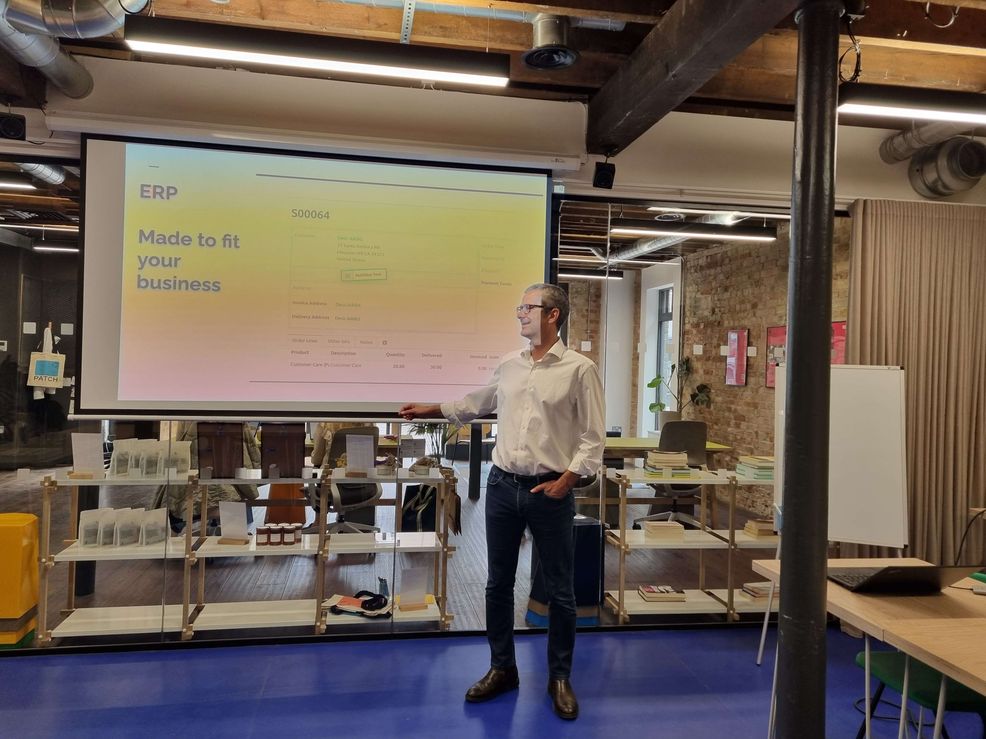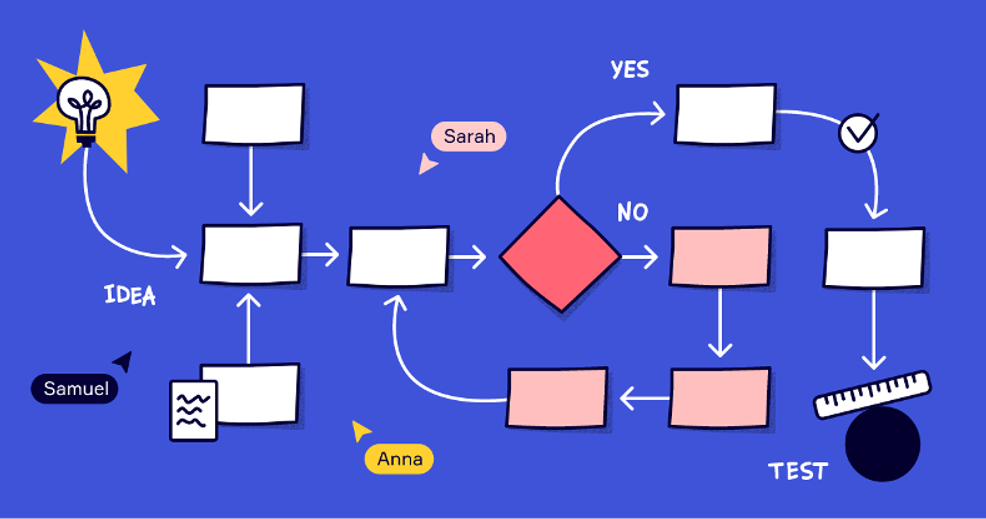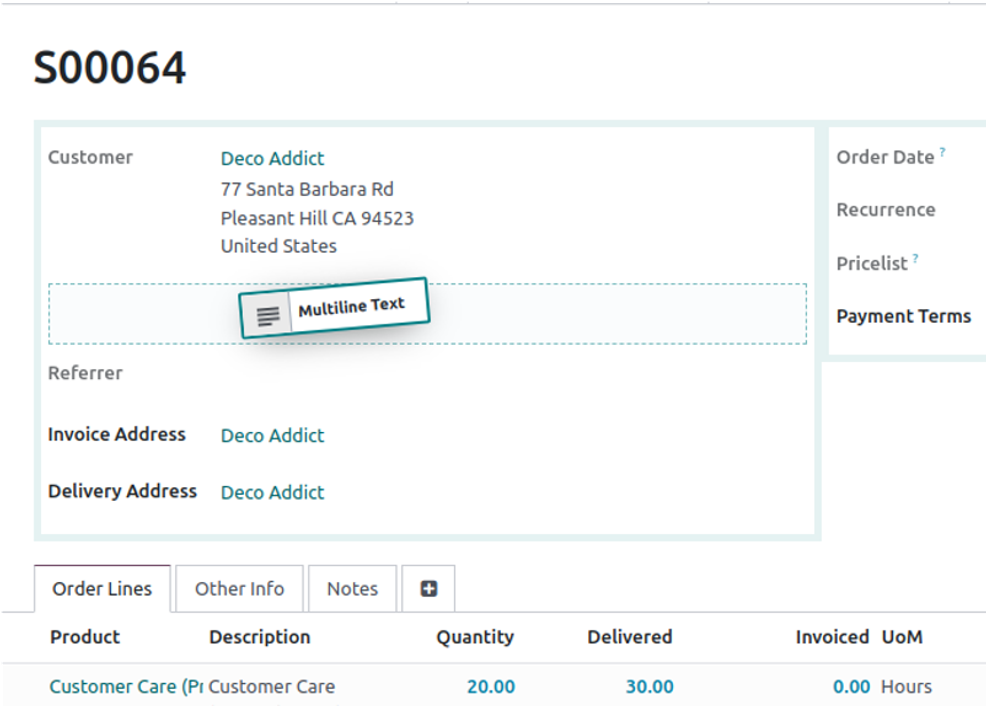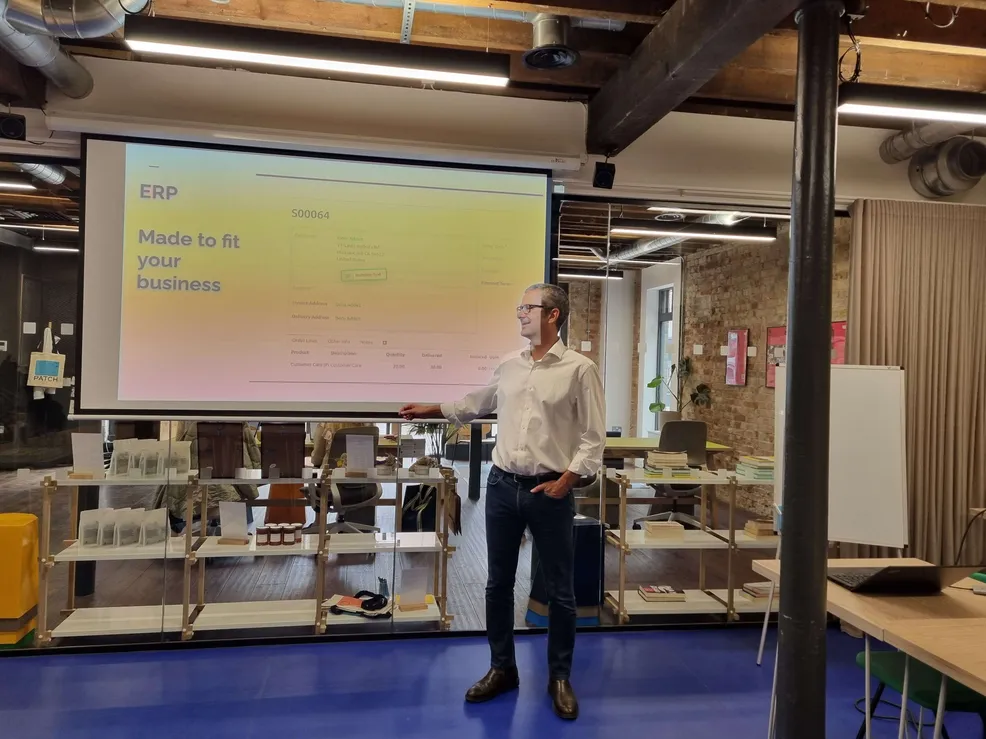The event
In May 2023, at the Patch - Chelmsford, we had the privilege of presenting a compelling case for early-stage adoption of ERP systems for businesses efficiency. The focus was on the advantages of adopting an Enterprise Resource Planning (ERP) system.
In this blog post, we will delve into the numerous benefits that ERP brings, such as:
- Scalability
- Resource efficiency
- Process streamlining
- Integration advantages
- Flexibility
With presence in the UK, ERPGAP has been helping businesses unlocking their full potential with ERP since 2017.
Now let’s discuss these topics in more detail, showing how it’s relevant to your business.

Start You Project Now
Benefits to Look Forward to
Business Scalability:
Scaling your business is a top priority, and ERP plays a vital role in achieving that objective. As your company grows, an ERP system grows alongside it, accommodating increased demands and complexities. By consolidating crucial business processes and data, ERP provides a robust foundation for future expansion and helps streamline operations.

Resource Efficiency
Optimizing resource utilization is essential during the early stages of a business. ERP offers a dynamic solution by:
- Integrating different departments and functions
- Eliminating silos
- Promoting collaboration
This integration enhances efficiency by automating manual tasks, reducing errors, and providing real-time insights. With improved resource management, you can allocate assets effectively and focus on strategic initiatives.

Process Streamlining
Efficient processes are key to gaining a competitive edge. ERP software streamlines and standardizes operations, minimizing redundancies and bottlenecks. From procurement and inventory management to accounting and customer relationship management, ERP consolidates processes, enabling seamless workflows and faster decision-making.

What is Enterprise Resource Planning (ERP)?
An ERP system is a comprehensive software solution that integrates various business functions, processes, and data into a unified system. It enables efficient management of core operations including, but not limited to:
- Finance
- Human resources
- Manufacturing
- Supply chain
- Customer relationship management
You can see it can optimize all aspects of a business.
ERP provides a centralized platform, eliminating data inconsistencies and fostering collaboration across departments.

The Integration Advantage of an ERP
Acting as a central nervous system for your business, an ERP system connects different departments and data sources. By consolidating information into a single database, ERP enables:
- Real-time visibility
- Reporting
- Analytics
Having access to this is empowering for any business leader. For one thing, the integration allows for better decision-making, improved customer service, and enhanced business intelligence.
The Flexibility and Scalability of an ERP
As your business evolves, so do your requirements. Luckily, ERP systems are designed to adapt and scale with your changing needs. Whether you expand geographically, diversify product lines, or modify processes, ERP provides the flexibility to accommodate these changes.
With customizable modules and configurations, you can tailor the ERP system to align with your unique business needs.

ERP Implementation Strategy
While the benefits of ERP are significant, it is important to acknowledge the challenges of implementation. If the following doesn’t get the necessary attention, you may come across various challenges:
- Establish a strategy
- Resource allocation
- Change management
- Data migration
- Employee training
- Alignment of processes
Defining the best implementation strategy requires experience. The right strategy can help you reduce risk and cost. Different businesses require different approaches, size, scale and human factors can greatly influence the overal plan.
This is the value our existing clients find in a partnership with ERPGAP.
View Real-World Case Study
In Conclusion
ERPGAP’s presentation in Chelmsford highlighted the strategic importance of adopting ERP early on. From scalability and resource efficiency to process streamlining and integration advantages, ERP empowers businesses to make informed decisions.
ERPGAP helps clients UK from different industries and scales to grow their business without loosing control.
Still have questions? The ERPGap team is here to assist. Let’s get you started.

Start Your Project Now






